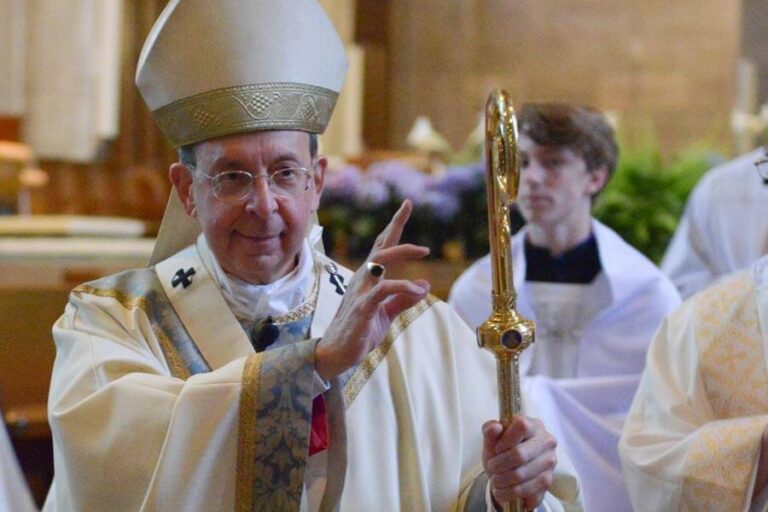In May, Netflix released a seven-part series called “The Keepers,” which details the efforts of a number of people to solve the 1969 murder of Sister Catherine Cesnik, S.S.N.D.
Sister Cathy, as she is known by many, had been a teacher at Archbishop Keough High School, which many of the individuals who are working today to help solve her murder attended. “The Keepers” relates that Sister Cathy was aware that students were being abused by a now-deceased priest, Joseph Maskell, who served as chaplain at Archbishop Keough, and suggests that her killing may have been related to what she knew about the abuse.
The docu-series is deeply troubling for many reasons, mostly because we hear first-hand the horrible accounts of the brave individuals who so courageously share the details of their abuse and the impact it has had on their lives. Their stories are gut-wrenching. And even though I have had the painful privilege of meeting with some of these survivors since coming to Baltimore more than five years ago, hearing them recount their horrific experiences in the series is no less powerful and emotional than doing so in person. Their stories are a distressing reminder of a dark chapter in the history of this local church and we continue to be remorseful for and ashamed of the actions of those few who committed such sinful and criminal acts while representing our church.
The series is also troubling for reasons beyond just the painful accounts shared by those who were abused. Anyone having watched the series could likely be led to believe the church was unsympathetic toward the victims, did not do enough to act on allegations once they were known, or even covered up the abuse. Though I was not here when the abuse occurred or when the first allegations were brought to the attention of the Archdiocese of Baltimore, I have made a tremendous effort to understand what occurred by reviewing the relevant files and by speaking with a great number of people who were involved in investigating the allegations.
What I have discovered is that while not every decision and action taken by the church in this matter was the perfect one, or even the right one, I am confident that at the time Jane Doe came forward in 1992, nobody in a position of authority in the archdiocese was aware of the abuse committed by Joseph Maskell. I am also confident that the church has been sincere in its efforts to reach out to survivors of Maskell, to corroborate allegations, to take prompt personnel action, to comply with state reporting laws and to cooperate with civil authorities. Nonetheless, as we have in the past, we must again apologize unconditionally for our past failures and recommit ourselves to the critical work of protecting children in the future based on what we have learned.
The Archdiocese of Baltimore and dioceses around the country and the world have made great strides to ensure the safety of children and young people in their care. By reporting all allegations to civil authorities; holding abusers accountable through zero-tolerance policies; requiring stringent background checks for employees and volunteers – including clergy; putting into place rigorous requirements for those seeking to become priests, including additional psychological screening; mandating child abuse detection training; communicating transparently; and relying on the guidance of an independent board that reviews our handling of such cases, the church of today is much safer, much holier.
As well, because society has a greater awareness about the issues and impact associated with child sexual abuse, we bring a greater sensitivity to our interactions with victim-survivors. Here in our archdiocese, we offer a sincere and contrite apology to those abused by representatives of the church and offer counseling assistance to promote the healing of the deep wounds caused by such crimes. We offer to meet with and listen to survivors as we seek to communicate with them with compassion. In addition, we enter into mediated settlements for those who wish to be in control of their own counseling, where appropriate.
While “The Keepers” does not accurately reflect the actions of the Archdiocese of Baltimore, it does highlight what is most important to me for the victims of Joseph Maskell and that is their own personal healing. It also serves as a reminder that while I can never undo the heinous crimes committed by Maskell, I will continue to do everything in my power to ensure that no child in our care is ever again harmed.
For more information about The Keepers, click here.



